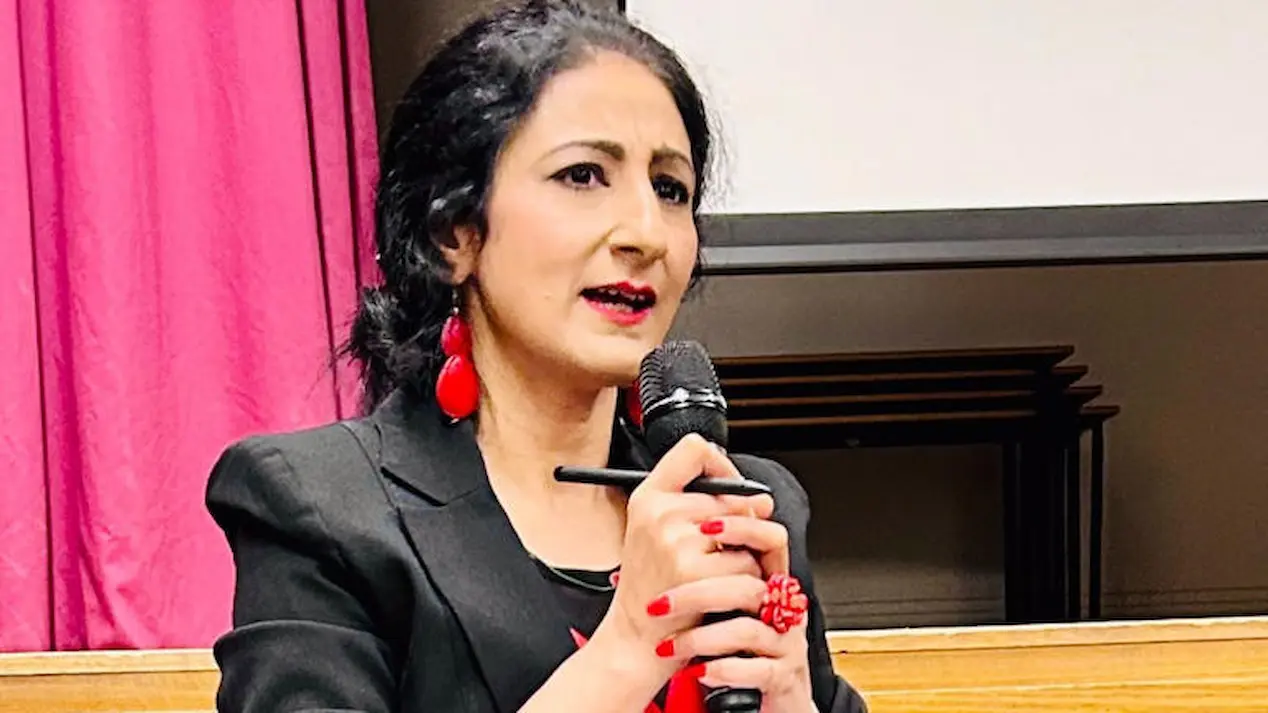
The Indian government has cancelled the Overseas Citizenship of India (OCI) status of UK-based professor Nitasha Kaul
Why Govt cancelled OCI status of Nitasha Kaul
The Government of India has revoked the Overseas Citizenship of India (OCI) status of Nitasha Kaul, a UK-based Indian-origin professor, citing her alleged involvement in anti-India activities. Kaul, a Kashmiri Pandit scholar and professor at the University of Westminster, shared the official notice on social media, calling it a “vindictive and cruel example of transnational repression”.
The cancellation letter accused Kaul of targeting India and its institutions through her writings, speeches, and journalistic activities, stating that her work was “motivated by malice and a complete disregard for facts or history”.
Table of Contents
What Led to the Cancellation?
Kaul had previously made headlines when she was denied entry into India at Bengaluru airport in 2024, despite being invited by the Congress-led Karnataka government to speak at an academic event. She claimed that immigration officials informally cited her criticism of the RSS as the reason for her deportation.
Her OCI status allowed her to travel and reside in India without visa restrictions, but the cancellation means she will now be treated as a foreign national when visiting the country.
Understanding OCI Status and Its Importance
The Overseas Citizenship of India (OCI) scheme was introduced in 2005 to provide foreign nationals of Indian origin with a lifelong visa to visit India. OCI holders enjoy several benefits, including:
- Multiple-entry visa for travel to India.
- Exemption from police registration for extended stays.
- Access to economic and educational opportunities, though they cannot vote or hold constitutional positions.
However, OCI holders are subject to restrictions, including limitations on journalistic activities, missionary work, and research without prior government approval.
Political and Social Reactions
Kaul’s OCI cancellation has sparked widespread debate on academic freedom and dissent. Critics argue that the move is part of a broader trend of silencing voices critical of the Indian government.
Supporters of the Decision
- Government officials claim that Kaul’s writings and speeches undermine India’s sovereignty.
- Nationalist groups argue that individuals engaging in anti-India rhetoric should not enjoy OCI privileges.
Critics of the Decision
- Human rights activists view the cancellation as an attack on free speech.
- Academics and scholars warn that such actions could discourage intellectual discourse on India’s policies.
Global Implications and Academic Freedom
Kaul’s case has drawn attention to the broader issue of transnational repression, where governments take action against critics living abroad. Similar incidents have been reported in other countries, including:
- China’s crackdown on dissidents abroad.
- Russia’s targeting of opposition figures in exile.
- Saudi Arabia’s restrictions on activists overseas.
Experts warn that India’s decision could set a precedent for restricting overseas scholars who critique government policies.
Conclusion
The cancellation of Nitasha Kaul’s OCI status raises important questions about academic freedom, dissent, and the rights of overseas Indians. While the Indian government defends its decision as a national security measure, critics argue that it reflects a growing intolerance toward opposing viewpoints. As debates continue, the case highlights the delicate balance between national interests and democratic values, shaping the future of India’s engagement with its diaspora.
2 thoughts on “India Cancels OCI Status of UK-Based Professor Nitasha Kaul Over ‘Anti-India Activities’”